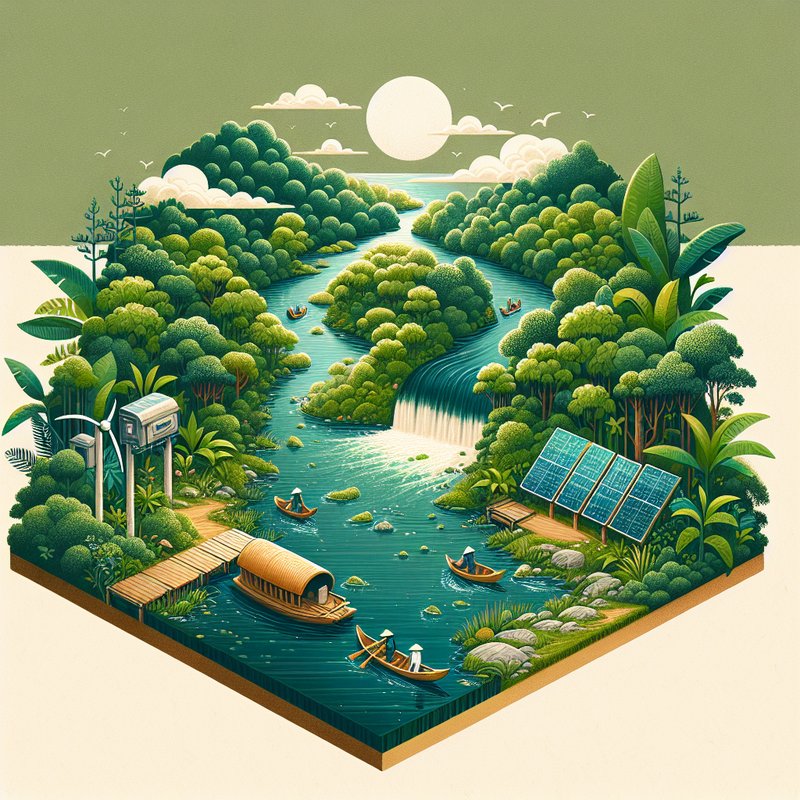Understanding Ecotourism in Vietnam

Ecotourism, fundamentally, is about responsible travel to natural areas that conserves the environment and improves the well-being of local people. In Vietnam, this concept is gaining momentum, with various regions promoting eco-friendly initiatives. From the lush forests of the Central Highlands to the pristine beaches of Phu Quoc, ecotourism here not only showcases the country’s biodiversity but also reflects a growing awareness of the need to preserve these environments.
The Vietnamese government, alongside local communities and NGOs, has launched numerous projects aimed at boosting sustainable practices within the tourism industry. These efforts include awareness campaigns, training programs for local guides, and support for eco-friendly businesses, all designed to create awareness about the environmental impacts of tourism and promote actions to reduce carbon footprints.
Ecotourism Hotspots: Where to Go

Vietnam is home to numerous remarkable ecotourism hotspots. The Mekong Delta, for instance, is a mosaic of winding canals, lush rice paddies, and fascinating cultures. Travelers can engage with local communities, learn about traditional fishing methods, and partake in eco-friendly farm tours. This immersion allows visitors to appreciate the balance between human life and nature, essential for sustainable tourism.
Similarly, Phong Nha-Ke Bang National Park offers stunning limestone karsts and expansive caves, ideal for trekking and cave exploration. These activities are designed to minimize environmental impact while allowing tourists to experience the extraordinary beauty of Vietnam’s geological heritage. Such destinations are increasingly promoting awareness around conservation efforts, making visitors part of the solution rather than just spectators.
Community Involvement in Ecotourism

The success of ecotourism in Vietnam significantly relies on community involvement. Local populations are not only the stewards of their environment but also play a crucial role in delivering authentic experiences to travelers. Communities are engaged in various aspects of tourism—from running homestays to guiding tours—allowing them to benefit directly from the income generated through ecotourism.
In many parts of Vietnam, community-based tourism projects are designed to prioritize and celebrate local traditions and cultures. These initiatives offer travelers a unique opportunity to engage directly with indigenous ways of life, allowing them to experience the rich heritage and customs that define local communities. This deep engagement not only enhances the tourist experience, making it more meaningful and personal, but it also plays a crucial role in empowering local residents by providing them with economic benefits and a platform to showcase their culture.
As visitors participate in traditional practices—such as crafting, cooking, and festive ceremonies—they contribute to the conservation of cultural traditions that might otherwise be at risk of fading away. This respectful tourism approach fosters a sense of pride among locals in their cultural identity, helping to preserve their customs and beliefs. Additionally, by minimizing the potential for exploitation of their resources, community-based tourism ensures that local populations remain the custodians of their cultural heritage, rather than passive observers in their own narrative.
Best Practices for Sustainable Travel in Vietnam

Travelers play a vital part in supporting ecotourism efforts by adopting sustainable travel practices. Researching and choosing eco-friendly accommodations, using public transport, and purchasing locally-made products help to reduce one’s environmental impact. Additionally, respecting local customs and being mindful of waste can significantly contribute to preserving the natural beauty of Vietnam.
Furthermore, being a conscious traveler means taking part in activities that directly benefit the environment. Tourists are encouraged to participate in beach clean-ups or conservation projects, which provides fulfilling experiences while promoting environmental stewardship. Ultimately, each traveler can be a catalyst for change, helping to ensure that Vietnam’s unique landscapes and cultures thrive for generations to come.

Leave a Reply